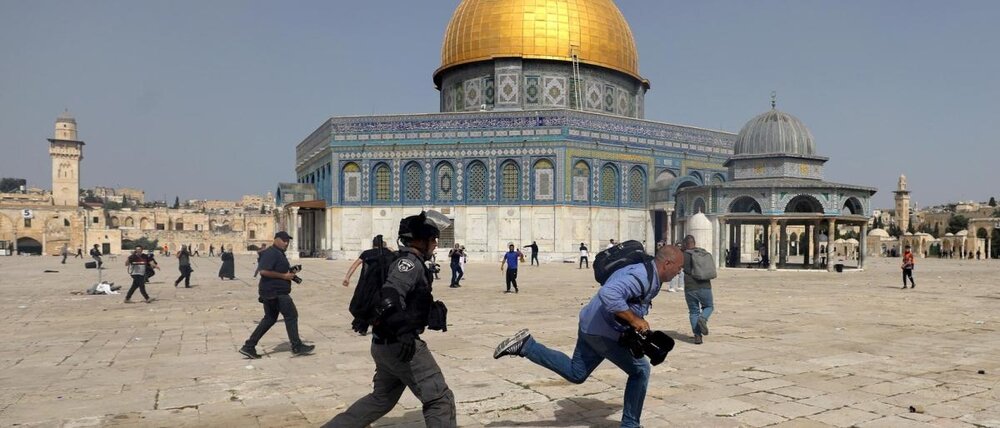Arab normalizers have become disenchanted with Israel

TEHRAN – Less than two years after “making history” with normalization deals, Arab countries that normalized diplomatic relations with Israel have begun parting ways with a regime they increasingly find too rigid to moderate.
Ever since September 15, 2020, when the United Arab Emirates (UAE) and Bahrain signed normalization deals with Israel, a lot of ink has been spilled and oxygen expended arguing that a different kind of peace can be achieved between an Arab state and Israel. The argument centered around the notion that peace deals between Jordan and Egypt on the one hand and Israel on the other hand represented an outdated era in Israeli-Arab relations that are no longer compatible with the current zeitgeist of the Arab world.
They asserted that Jordanian and Egyptian peace accords with Israel were “cold peace” while those of the UAE and Bahrain were “warm peace.” At some point, there even calls for turning the cold peace between Cairo and Amman and Tel Aviv into a warm one, a la the one between the UAE and Israel.
That argument proved wishful thinking. Simply because it failed to take into account the importance Arab and Muslima attach to the Palestinian cause, and particularly the Muslim sanctities in Jerusalem (al-Quds), which Israel continues defiling.
After Israel took a number of sacrilegious moves against Muslim sanctities in Jerusalem including the Al-Aqsa Mosque, some Arab and Muslim countries which used to be at the forefront of normalization efforts strongly condemned Israel’s measures.
On Tuesday, The UAE foreign ministry summoned Israeli Ambassador to the UAE Amir Hayek to inform him of “the country's strong protest and denunciation of the events taking place in Jerusalem and Al-Aqsa Mosque, including attacks on civilians and incursions into holy places that resulted in the injury of a number of civilians,” according to a UAE foreign ministry statement.
The UAE also canceled the participation Etihad Airways and Wizz Air Abu Dhabi in an Israeli air show scheduled for May 5, on the occasion of the 74th anniversary of the establishment of Israel. The move was made against the backdrop of tensions in Jerusalem and Al-Aqsa Mosque.
The UAE foreign ministry “stressed the need to immediately stop these events, provide full protection for worshipers, respect the right of Palestinians to practice their religious rites, and halt any practices that violate the sanctity of Al-Aqsa Mosque.”
Turkey is now openly highlighting the distinction between its normalization moves and the need to defend the Palestinian people. Turkish President Recep Tayyip Erdogan has said Ankara still does not intend to turn a blind eye to the occupation or attacks on holy places in Jerusalem and other Palestinian territories, according to Anadolu Agency.
In a Tuesday phone call, Erdogan told Israeli President Isaac Herzog: “We are deeply saddened by the fact that more than 400 Palestinians were injured and 18 people, including children, lost their lives in the events that took place in the West Bank and Al-Aqsa Mosque since the beginning of the month of Ramadan.”
Earlier on Friday, The Ministry of Foreign Affairs of Bahrain condemned the Israeli police’s storming of the Al-Aqsa Mosque on Friday, and the resulting acts of violence, injury and arrest of dozens of worshipers, which acts as a provocation to Muslims, especially in the holy month of Ramadhan, the Ministry said in a statement.
Turkey, the UAE, Bahrain, Egypt, Jordan, and Morocco all have diplomatic relations with Israel but these relations had zero effect on Israel’s approach toward the Palestinian. Some of the Arab states that recently joined the normalization bandwagon with the hope that would be able to moderate Israel’s stance toward the Palestinians. But now they are discovering the impossibility of their hope.
Leave a Comment